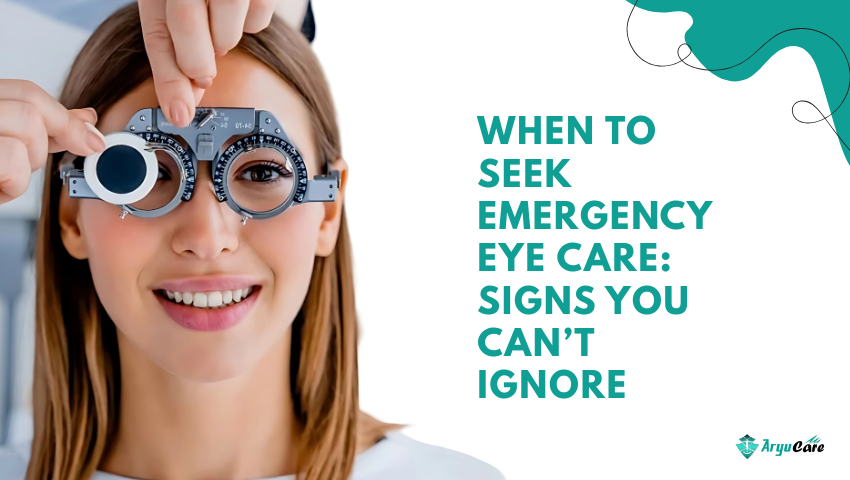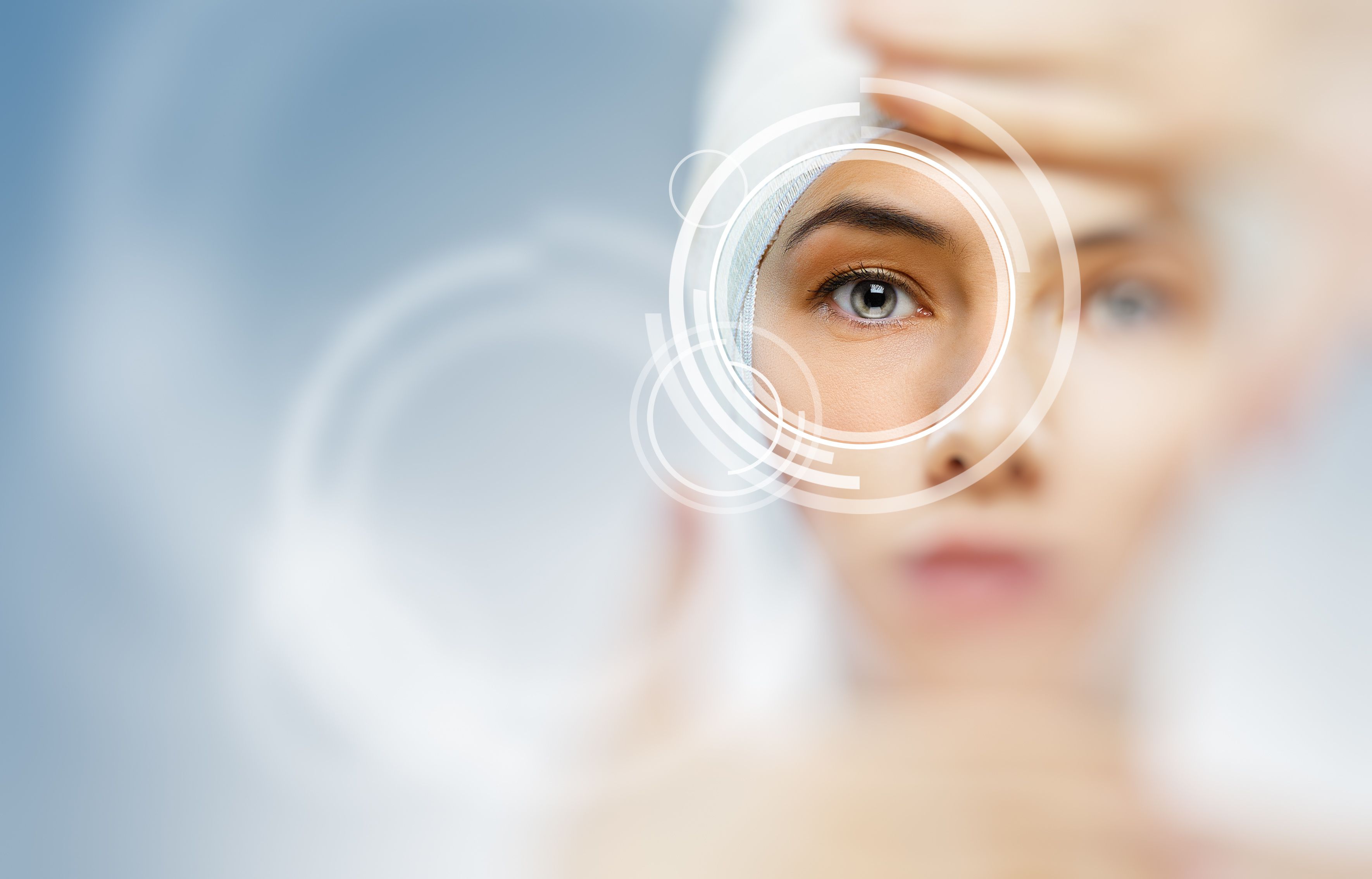Eye Care
When to Seek Emergency Eye Care: Signs You Can’t Ignore
Your eyes are one of your most vital organs, and any sudden changes or injuries can be alarming. While some eye issues, like mild irritation, can be managed at home, certain symptoms require immediate medical attention to prevent permanent damage or vision loss. Knowing when to seek emergency eye care is crucial for protecting your sight. In this blog, we outline the critical signs you can’t ignore, explain common eye emergencies, and provide guidance on what to do when faced with a vision crisis. Always err on the side of caution and contact a healthcare provider or eye specialist if you’re unsure about your symptoms.
Why Emergency Eye Care Matters
Eye emergencies can range from injuries and infections to sudden vision changes, and delays in treatment can lead to serious consequences, including blindness. According to the American Academy of Ophthalmology, prompt care within hours or even minutes can make the difference in saving vision. Eye emergencies often involve trauma, chemical exposure, or conditions affecting the retina, cornea, or optic nerve, which require specialized intervention from an ophthalmologist or emergency room staff.
Understanding the warning signs empowers you to act quickly, whether it’s rushing to an ER, visiting an urgent care facility with eye specialists, or calling your eye doctor for guidance. Below, we detail the symptoms and conditions that demand immediate attention.
Signs You Need Emergency Eye Care
If you experience any of the following symptoms, seek emergency eye care without delay. These signs indicate potential serious issues that could jeopardize your vision.
1. Sudden Vision Loss or Changes
-
What It Feels Like: Complete or partial loss of vision in one or both eyes, sudden blurriness, blind spots, or double vision.
-
Possible Causes: Retinal detachment, optic neuritis, central retinal artery occlusion, stroke, or acute glaucoma.
-
Why It’s Urgent: Sudden vision loss can signal a retinal or neurological emergency. For example, retinal detachment, where the retina pulls away from the back of the eye, requires surgery within hours to prevent permanent blindness. Studies show that 80% of retinal detachment cases retain vision if treated promptly.
-
What to Do: Go to an ER or contact an ophthalmologist immediately. Avoid eating or drinking in case surgery is needed.
2. Severe Eye Pain
-
What It Feels Like: Intense, throbbing pain in or around the eye, often accompanied by redness, light sensitivity, or nausea.
-
Possible Causes: Acute angle-closure glaucoma, corneal ulcers, uveitis, or trauma.
-
Why It’s Urgent: Severe pain can indicate high intraocular pressure (e.g., glaucoma), which can damage the optic nerve within hours. Acute glaucoma affects 1–2% of people over 40 and is a leading cause of irreversible blindness if untreated.
-
What to Do: Seek immediate care at an ER or eye clinic. Do not rub the eye or apply pressure.
3. Foreign Object or Trauma to the Eye
-
What It Feels Like: Sensation of something in the eye, pain, tearing, or visible injury after impact (e.g., sports accident, debris).
-
Possible Causes: Corneal abrasion, penetrating injury, orbital fracture, or embedded foreign object.
-
Why It’s Urgent: Foreign objects or trauma can cause infections, scarring, or structural damage. Penetrating injuries have a 10–15% risk of vision loss without rapid treatment.
-
What to Do: Do not rub or attempt to remove the object. If possible, cover the eye with a protective shield (e.g., a paper cup taped gently) and head to an ER. For minor debris, flush with clean water only if it’s not embedded.
4. Chemical Exposure
-
What It Feels Like: Burning, stinging, or intense irritation after contact with chemicals (e.g., cleaning products, bleach, or acids).
-
Possible Causes: Chemical burns to the cornea or conjunctiva.
-
Why It’s Urgent: Chemical burns can cause permanent corneal scarring or blindness within minutes, especially with alkaline substances like ammonia. Immediate flushing can reduce damage by up to 50%, per research.
-
What to Do: Rinse the eye with clean water or saline for at least 15–20 minutes, holding the eyelid open. Remove contact lenses if present. Then, go to an ER or eye specialist immediately, bringing the chemical’s container if possible.
5. Sudden Flashes of Light or Floaters
-
What It Feels Like: Bright flashes, streaks of light, or a sudden increase in floaters (dark spots or lines in your vision), often with a “curtain” effect.
-
Possible Causes: Retinal tear, retinal detachment, or posterior vitreous detachment.
-
Why It’s Urgent: Flashes and floaters can signal a retinal tear, which may progress to detachment if untreated. About 1 in 7 people with sudden floaters and flashes have a retinal issue requiring urgent care.
-
What to Do: Contact an ophthalmologist or visit an ER within 24 hours, sooner if vision loss occurs.
6. Severe Redness with Discharge or Swelling
-
What It Feels Like: Red, watery eyes with thick discharge, swelling, or crusting, often with pain or vision changes.
-
Possible Causes: Bacterial conjunctivitis, corneal infection, or orbital cellulitis (a serious infection around the eye).
-
Why It’s Urgent: Infections like orbital cellulitis can spread rapidly, risking vision or systemic complications. Corneal infections, often linked to contact lens misuse, can cause scarring within 48 hours.
-
What to Do: Seek care at an ER or eye clinic, especially if symptoms worsen quickly or affect vision. Avoid contact lenses until cleared by a doctor.
7. Eye Injury from Blunt Force or Sharp Objects
-
What It Feels Like: Pain, bruising, swelling, or bleeding after being hit or cut near the eye, possibly with vision changes.
-
Possible Causes: Hyphema (blood in the eye), ruptured globe, or orbital fracture.
-
Why It’s Urgent: Blunt or sharp injuries can cause internal bleeding or structural damage, with up to 30% of severe cases leading to vision loss without prompt treatment.
-
What to Do: Cover the eye gently with a clean cloth or shield and go to an ER immediately. Avoid applying pressure or taking painkillers like aspirin, which can worsen bleeding.
What to Do in an Eye Emergency
If you experience any of the above symptoms, follow these steps:
-
Act Quickly: Time is critical in eye emergencies. Call an ophthalmologist, visit an ER, or go to an urgent care facility with eye specialists.
-
Avoid Rubbing or Pressing: This can worsen injuries or spread infections.
-
Protect the Eye: Use a clean cloth or shield (e.g., a paper cup) to prevent further damage, especially for injuries or foreign objects.
-
Flush for Chemicals: Rinse with water or saline for at least 15 minutes for chemical exposure before seeking care.
-
Note Details: Record when symptoms started, any triggers (e.g., trauma, chemicals), and your medical history to share with the doctor.
-
Avoid Self-Treatment: Over-the-counter drops or ointments may worsen some conditions, like infections or glaucoma.
If you’re unsure whether your symptoms qualify as an emergency, call your eye doctor or a medical hotline for guidance. Many ophthalmology practices offer after-hours lines for urgent concerns.
Preventing Eye Emergencies
While not all eye emergencies are preventable, these steps can reduce your risk:
-
Wear Protective Eyewear: Use safety glasses during sports, DIY projects, or work with chemicals to prevent trauma (e.g., ANSI Z87.1-certified goggles).
-
Handle Chemicals Safely: Store cleaners and solvents securely, and wear gloves and goggles when using them.
-
Practice Contact Lens Hygiene: Clean lenses properly, avoid sleeping in them, and replace them as directed to prevent infections.
-
Manage Chronic Conditions: Control diabetes, hypertension, or autoimmune diseases to reduce risks like retinal issues or glaucoma.
-
Get Regular Eye Exams: Annual checkups can detect early signs of glaucoma, retinal problems, or other conditions, especially if you’re over 40 or have a family history.
-
Know Your Risk Factors: Age, family history of eye disease, or high-risk activities (e.g., welding) increase the need for vigilance.
When to Follow Up
After receiving emergency eye care, follow your doctor’s instructions closely. This may include:
-
Using prescribed drops or medications (e.g., antibiotics, steroids).
-
Attending follow-up appointments to monitor healing or vision changes.
-
Avoiding activities like heavy lifting or swimming that could strain the eye.
-
Watching for recurring symptoms, such as pain or vision loss, and reporting them immediately.
Some conditions, like retinal detachment or glaucoma, may require ongoing management to prevent recurrence.
Conclusion
Eye emergencies can be frightening but knowing when to seek care can protect your vision and prevent long-term damage. Symptoms like sudden vision loss, severe pain, flashes and floaters, chemical exposure, or trauma demand immediate attention from an ER or eye specialist. By acting quickly, avoiding self-treatment, and taking preventive measures, you can safeguard your eye health.




